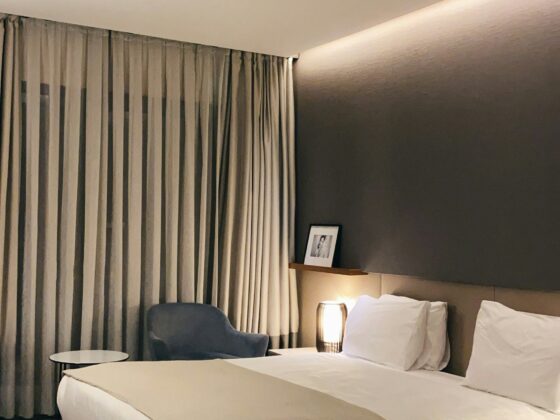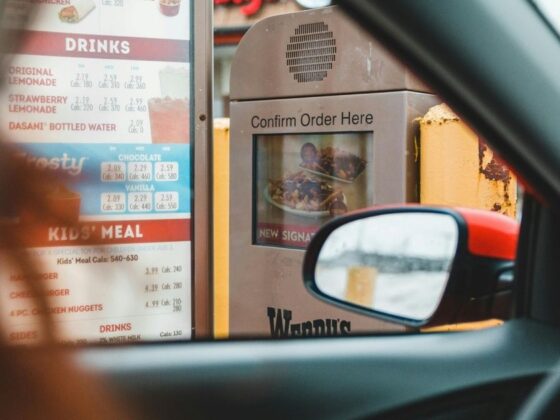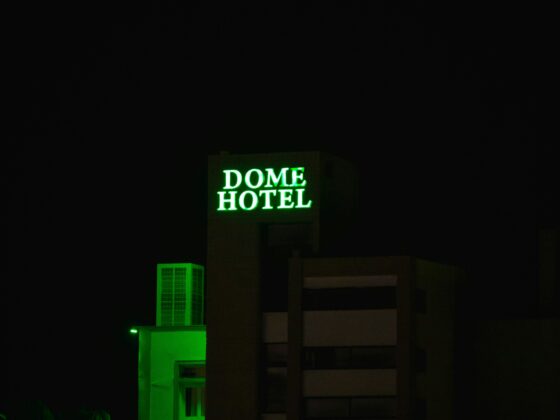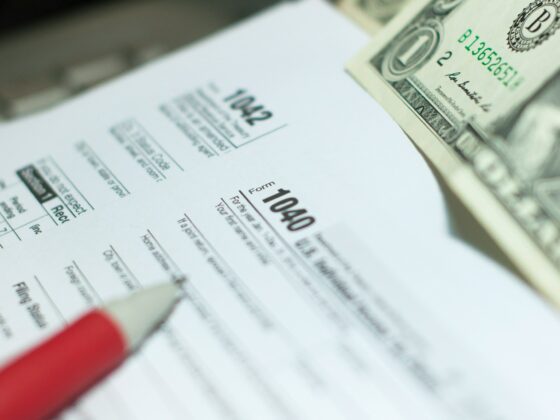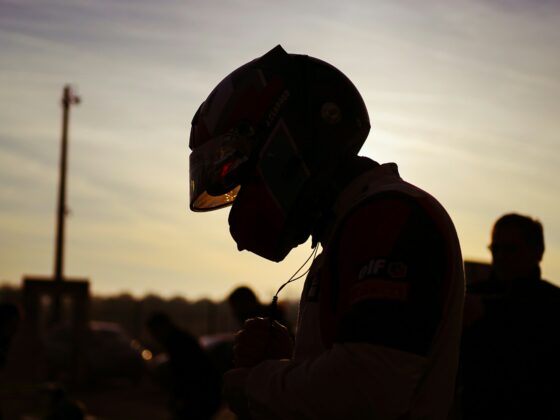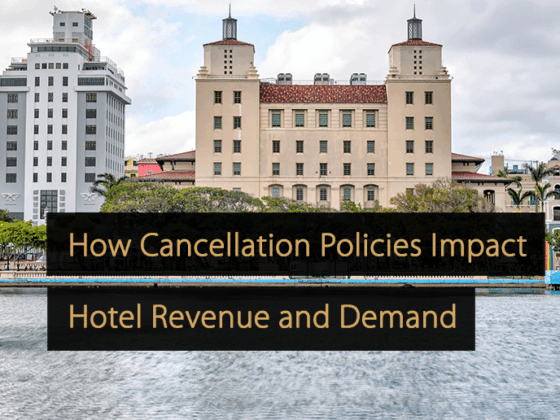
NEW YORK — Not even a strident protest could derail lodging company CEOs from staying on message.
Shortly after the start of the CEO panel at NYU IHIF, at the Marriott Marquis, demonstrators outside the conference space could be heard blowing whistles and banging on doors. One got through and was subdued by security. Shouting rang through the hall, but it was difficult to ascertain the message. At one point, Sebastien Bazin, president and CEO of Accor, told the audience they were shouting “Free Palestine.” As the audience craned their necks to get a better look and perked their ears, the panel continued undaunted. Chris Nassetta, president and CEO of Hilton, turned to Anthony Capuano, his counterpart at Marriott International: “Tony, this could be one heck of a service recovery,” he said, generating nervous laughter from the crowd. Some in the audience left their seats and took positions closer to the wall.
It turns out that the protestors were not there to protest the war in Gaza; rather, they were there railing against what they perceive to be Marriott’s use of eggs from caged chickens. Marriott International said its aim is to source 100% of eggs from cage-free sources by the end of 2025.
The protest quelled, the panel continued and an unfazed Capuano gave a strong defense of travel and hospitality despite headwinds and data that would say otherwise. “Consumer confidence,” he said, “is at a 52-year low, but travel is still strong. It hasn’t been doomed.” Though Capuano is right about the precipitous drop in consumer confidence, he was likely citing a recent University of Michigan study that said sentiment plunged 11% in the month to a preliminary reading of 50.8, the second-lowest reading on records going back to 1952. The April reading was lower than anything seen during the Great Recession. It rebounded some in May.
Though CEOs were reluctant to offer a definitive reason for consumer whiplash, Hyatt Hotels CEO Mark Hoplamazian said that the first 100 days of the Trump administration were volatile, which, he added, leads to uncertainty and attendant caution from not only consumers but investors in the hospitality sector. “It’s created uncertainty and caution and slowing of growth,” he said.
“Theres a lot of oxygen being consumed in D.C.,” said Nassetta, an area native, who still resides in Northern Virginia. What can’t be dismissed is the effect government policies have had on short-term and long-term operations. Most of the publicly traded lodging companies guided their full-year 2025 RevPAR down on variables including trade and tariffs. In the first quarter, Hilton’s system-wide comparable RevPAR increased 2.5% compared to the same period a year ago, but it guided its full-year projection down to flat to an increase of 2%. At the time, Nassetta said the belief was that travelers were largely in a wait-and-see mode as the rapidly changing macro-environment continues to unfold.”
His sentiment today isn’t much changed. “”Every day, it seems like there is a new thing going on,” Nassetta said. “You get more conservative. Customers have said that. They are not planning [trips] as far out and they may show up last minute. It’s hard to forecast.” Meanwhile, Bazin, the one non-American on the panel, said he spends less than 5% of his time trying to understand government policy, which is easier for him since 66% of Accor’s hotels are in the Middle East or Asia-Pacific.
Data benchmarking firm CoStar revised its full-year RevPAR projection down to 1%, which down 80 basis points from its last forecast. “Top-line performance is still growing even in the current environment,” said Amanda Hite, president of STR. “Until consumer confidence improves, however, demand is going to remain softer.”
Leisure gains are becoming more isolated, particularly in the economy and midscale tiers, where consumers are much more sensitive to economic swings. “There is a massive divergence in chain scales,” said Hoplamazian. “Luxury is up double digits; lower scales are under more pressure.” Hyatt has historically operated in upscale and luxury spaces with brands like Park Hyatt and Grand Hyatt, but in recent years has added more down-scale brands, such as Hyatt Studios, an extended-stay product, to accommodate the traveling public and its World of Hyatt loyalty members.
Like Nassetta, Hoplamazian added “a weird thing,” where, he said, pace for transient business starts to slow down two months out and then comes up closer to booking time. “People are not sure they’ll take that trip, but it recovers by the time it gets to that month,” he said. “The booking curve has shortened up.”
Outside the U.S.
The challenges in U.S. domestic travel are being abutted by lessening international inbound. Geoff Ballotti, president and CEO of Wyndham Hotels Group, cited March data that noted international inbound travel was down 15%, with a 30% drop from Canada. Though Brand USA, the travel marketing arm of the United States, is funded through 2027, Ballotti cited monetary pressures it was facing. Brand USA is not taxpayer funded, but funded through a public-private partnership model. “It could be cut,” he said.
Inbound international travel is still only a rather small percentage of total U.S. travel. “We’d love the U.S. to get more share of it,” said Elie Maalouf, CEO of IHG Hotels & Resorts. “We haven’t been as successful.”
One thing CEOs agree on is where future growth markets are, namely India and the Middle East. The latter is Wyndham’s fastest growth market, said Ballotti. In May, Wyndham announced a 10-year agreement to develop 100 Super 8 by Wyndham hotels across Saudi Arabia.
It’s a similar growth story in India, which is making significant strides in infrastructure development. The Asian Development Bank recently announced an investment of $10 billion over the next five years to upgrade and modernize urban infrastructure across India.
Accor’s Bazin cited the country’s rising middle classes and rising means of transport. Hilton’s Nassetta was now optimistic about the infrastructure that was promised “now actually happening.” At the same time, the opportunity for Western brands appears endless, if Indians are accepting of them. As Nassetta pointed out, “There are more branded hotels in Las Vegas than all of India.”
The panel ended on a familiar if not comforting note. Though macroeconomics impact consumer sentiment and how dollars are spent, travel, they argued is no longer discretionary but absolute, the refrain of “experiences over goods,” as voiced by Capuano.
Hyatt’s Hoplamazian invoked Maslow’s Hierarchy of Needs to explain the persistence of travel and the pursuit of self-actualization. Boiled down: “People need camaraderie,” he said. “It doesn’t come and go. It persists.”


